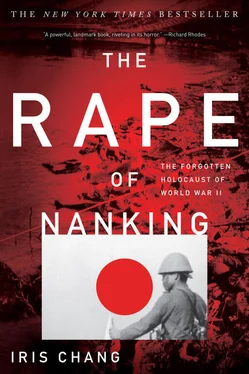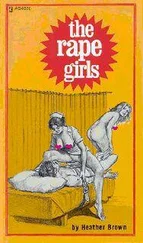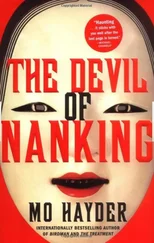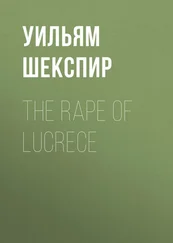32. “During these impressionable years”: 106/5485, February 1928 report, p. 84, Papers of the British War Office.
33. That August, while attempting to land thirty-five thousand fresh troops: David Bergamini, Japan’s Imperial Conspiracy (New York: Morrow, 1971), p. 11.
33. In the 1930s Japanese military leaders: John Toland, The Rising Sun: The Decline and Fall of the Japanese Empire (New York: Random House), p. 47. “Crush the Chinese in three months and they will sue for peace,” Minister Sugiyama predicted.
CHAPTER 2: SIX WEEKS OF TERROR
37. “specialist in thought control, intimidation and torture” : David Bergamini, Japan’s Imperial Conspiracy (New York: William Morrow and Company, 1971), p. 16.
37. “a beast” : Kimura Kuninori, Koseiha Shogun Nakajima Kesago [Nakajima Kesago, General of the Individualist Faction]. (Tokyo: Kôjinsha, 1987), p. 212.
37. “masked shogun” : Sugawara Yutaka, Yamatogokoro: Fukumen Shogun Yanagawa Heisuke Seidan [Spirit of Japan: Elevated Conversation from the Masked Shogun Yanagawa Heisuke] . (Tokyo: Keizai Oraisha, 1971), p. 9.
37. Consider the example of Suchow: Wu Tien-wei, “Re-study of the Nanking Massacre,” Journal of Studies of China’s Resistance War against Japan (China Social Science Academy), no. 4 (1994): 43; Central Archive Bureau, China No. 2 Historical Archive Bureau; Jilin Province Social Science Academy, ed., Pictorial Evidence of the Nanjing Massacre (Changchun, PRC: Jilin People’s Publishing House, 1995), p. 31; Dick Wilson, When Tigers Fight: The Story of the Sino-Japanese War, 1937–1945 (New York: Viking, 1982), p. 69.
38. The invasion, according to the China Weekly Review: China Weekly Review (March 1938).
38. “There is hardly a building standing” : Manchester Guardian reporter Timperley wrote this account, which was telegraphed to London by another correspondent on January 14, 1938.
38. On December 7, as the Japanese troops: For this section on Asaka’s replacement of Matsui, see Bergamini, Japan’s Imperial Conspiracy, ch. 1, p. 22.
39. “not good”: Kido, Nikki, 468, quoted in ibid., p. 23.
39. “sparkle before the eyes”: Nakayama Yasuto, testimony before IMTFE, “Proceedings,” p. 21893 (see also pp. 33081ff., 37238ff., and 32686 [Canberra]), quoted in ibid., p. 23.
39. “The entry of the Imperial Army”: Quoted in ibid.; see also IMTFE judgment, pp. 47171–73, National Archives.
40. After Asaka heard this report: Bergamini, Japan’s Imperial Conspiracy, p. 24; Information on footnote on Tanaka Ryukichi comes from Pictorial Evidence of the Nanjing Masacre , p. 35. (Bergamini’s book is poorly footnoted so it must be used with caution. However, the citation suggests that he interviewed Tanaka.)
41. “BATTALION BATTLE REPORTER”: Quoted in Jilin Province Social Science Academy, ed., Pictorial Proof of the Nanking Massacre , p. 62. The English translation of this command appears in Yin and Young, The Rape of Nanking, p. 115.
42. “To deal with crowds of a thousand”: Kimura, “The Battle of Nanking: Diary of 16th Division Commander Nakajima,” Chuo Kouron Sha [Tokyo] (November 24, 1984). Nakajima’s diary appeared in a December 1984 supplement to the Japanese periodical Historical Figures . The English translation of parts of his diary appears in Yin and Young, The Rape of Nanking, p. 106.
43. “It was a magnificent view”: Azuma Shiro, Waga Nankin Pura-toon [My Nanjing Platoon] (Tokyo: Aoki Haruo, 1987).
44. fifty-seven thousand: IMTFE verdict.
45. “The [Japanese] army encountered great difficulties”: Quoted in Honda Katsuichi, Studies of the Nanking Massacre (Tokyo: Ban-sei Sha Publishing, 1992), p. 129.
45. “After three or four hours”: Kurihara Riichi, Mainichi Shimbun, August 7, 1984.
46. “The result was a mountain of charred corpses”: Honda Katsuichi, The Road to Nanking ( Asahi Shimbun , 1987), quoted in Yin and Young, p. 86.
46. After the soldiers surrendered en masse: For this section, “The Murder of Civilians,” see Gao Xingzu, Wu Shimin, Hu Yungong, and Zha Ruizhen (History Department, Nanjing University), “Japanese Imperialism and the Massacre in Nanjing—An English Translation of a Classified Chinese Document on the Nanjing Massacre,” translated from Chinese into English by Robert P. Gray ( pgray@pro.net). See also China News Digest, special issue on the Nanjing massacre, part 1 (March 21, 1996).
46. Corpses piled up outside the city walls: Gao Xingzu, “On the Great Nanking Tragedy,” Journal of Studies of Japanese Aggression Against China (November 1990): 70.
47. These atrocities shocked many of the Japanese correspondents: The English translations of the Japanese journalists’ accounts of the Nanking massacre appear in Yin and Young, The Rape of Nanking, pp. 52–56.
47. “One by one the prisoners fell down”: Ibid.
47. “On Hsiakwan wharves”: Imai Masatake, “Japanese Aggression Troops’ Atrocities in China,” China Military Science Institute, 1986, pp. 143–44.
48. “Those in the first row were beheaded”: Omata Yukio, Reports and Recollections of Japanese Military Correspondents (Tokyo: Tokuma Shoten, 1985).
48. “Before the ‘Ceremony of Entering the City’”: Quoted in Moriyama Kohe, The Nanking Massacre and Three-All Policy: Lessons Learned from History (Chinese-language edition, People’s Republic of China: Sichuan Educational Publishing, 1984), p. 8.
48. “I’ve seen piled-up bodies”: Quoted in Yang Qiqiao, “Refutation of the Nine-Point Query by Tanaka Masaaki,” Baixing (Hong Kong), no. 86 (1985).
49. “Women suffered most”: Quoted in Hu Hua-ling, “Chinese Women Under the Rape of Nanking,” Journal of Studies of Japanese Aggression Against China (November 1991): 70.
49. Surviving Japanese veterans claim: Azuma Shiro, undated letter to the author, 1996.
49. Soldiers were even known to wear amulets: George Hicks, The Comfort Women: Japan’s Brutal Regime of Enforced Prostitution in the Second World War (New York: Norton, 1994), p. 32.
49. “At first we used some kinky words”: Interview with Azuma Shiro in In the Name of the Emperor (film), produced by Nancy Tong and co-directed by Tony and Christine Choy, 1995.
49. “After raping, we would also kill them”: Quoted in Hu Hua-ling, “Chinese Women Under the Rape of Nanking,” p. 70.
50. “Perhaps when we were raping her”: Shiro Azuma, undated letter to the author, 1996.
50. raping some twenty women: “The Public Prosecution of Tani Hisao, One of the Leading Participants in the Nanking Massacre,” Heping Daily , December 31, 1946.
50. “Either pay them money or kill them”: Quoted in Bergamini, Japan’s Imperial Conspiracy, p. 45.
50. “Great Field Marshal on the Steps of Heaven”: Quoted in Bergamini, Japan’s Imperial Conspiracy, p. 39.
50. The next day the Western news media: Hallett Abend, “Japanese Curbing Nanking Excesses,” New York Times, December 18, 1937.
51. “I now realize that we have unknowingly wrought”: Okada Takashi, testimony before IMTFE, p. 32738.
Читать дальше











